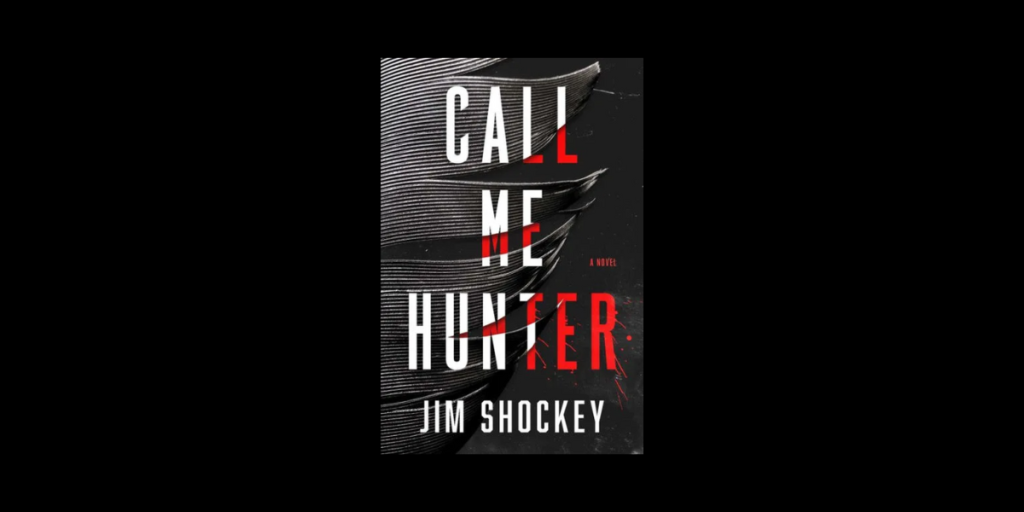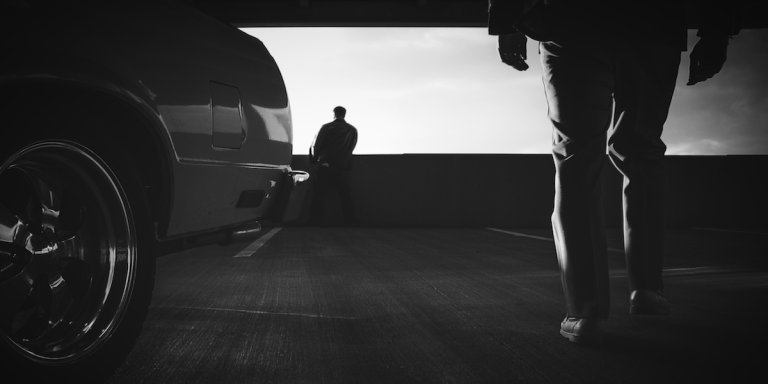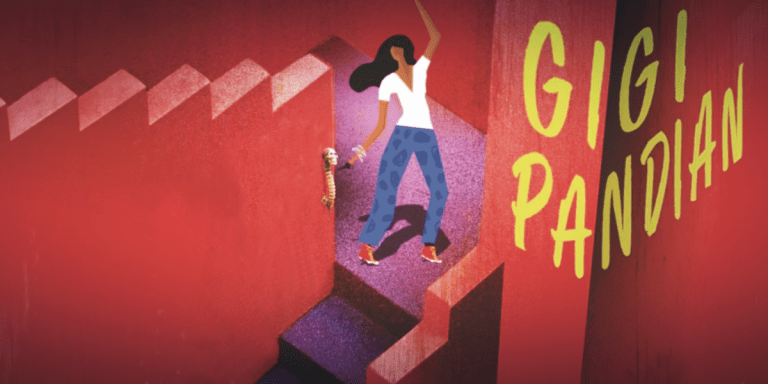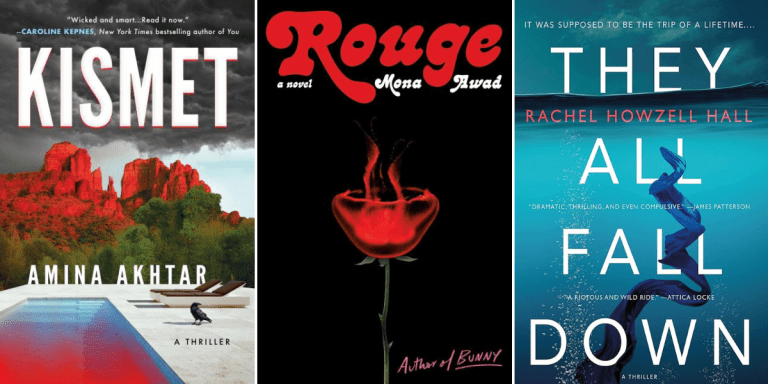Read the Excerpt: Call Me Hunter by Jim Shockey

Zhivago is dead. I hunted him down and I killed him.
The police are gone and the street is dark now. Quiet. I stood right here and watched them carry him away. No. Watched isn’t the right word; I enjoyed them carrying him away. He will never say “exquisite” again. He will never hurt you.
Zhivago is only the first. Before this is done, they will all know me as fear.
You knew me a long time ago by another name. Know me now as Tsau-z.
I am the Man of Sores. All this you need to know. Soul Catcher.
This is all you need to know.
1
2020
Pinehurst, North Carolina
A car passed. The driver didn’t wave. A crow cawed and in the distance the not-there, but always-there, white noise of the city droned on. Nyala noticed none of these things. The high pines filtered the afternoon sun, muted the day, and held back the heat of the North Carolina fall. The mailbox was silver finished tin, rusting now and canted slightly on the square white post, dug into the ground at least two decades before.
Nyala frowned.
The package wasn’t all that unusual for her to receive; it was rolled slightly to fit through the squeaky top-hinged mailbox door. It would be magazines normally, but they didn’t usually come in plain brown manila packaging. She’d actually had a thought when she’d pulled the package from the mailbox that somehow she’d been sent some pornographic magazine by mistake, and not just one magazine, several. The package was heavy.
Ha! She’d smiled to herself. That was a joke. Even if she was so inclined, who had time to look at dirty pictures? She felt a pang of regret; when was the last date she’d been on, a month ago? Oh wait, that’s right, never. Work, always work; no time for indulgences, she told anyone who asked. No dates. No relationships. It had to be the right one or nobody; she’d felt that way for as far back as she could remember. She’d stopped trying to figure out why she was saving herself. She just was. It was one of her secrets.
The package didn’t have a return address, only “Tsau-z” in black pen. Tsau-z? A place? Never heard of it. Weird. She turned then, holding the package, curious, slowly ripping the wrapping as she walked back to her house, careful not to slide her thumb along its edge. Crazies out in the world these days; someone she knew, or at least someone a friend of a friend knew, had received an envelope from an anonymous sender, a card with razor blades taped to the edge of it. She shivered. Ugly. What a screwed-up world.
But there was no razor blade. Only what appeared to be three or four hundred typewritten pages, loose in a heavy file folder. She turned the package over in her hands again, looking more carefully at the brown wrapping this time. No return address, just the single word Tsau-z in the top left corner and “Occupant” with her address under it, written in precise penmanship on the front of the package. But something was missing.
No stamps; no parcel postmarkings on the packaging material at all. That was strange. Last time she checked, snail mail delivery, as slow as it was, still required some sort of payment and proof of payment on the outside of any letter or package.
Just a little creepy; not razor blade crazy, but still disconcerting.
A bird flitted through the branches of the flowering shrub close by, startling her.
Ugh. She shook her head. Get a grip. She ripped the wrapping enough to pull the file folder out and flipped through the pages once quickly, then returned to the first page to read it.
Jesus, what was this?
Zhivago is dead.
I hunted him down and I killed him.
Zhivago? Killed? And enjoyed it?
Suddenly she felt anxiety crawling out from the dark place where she fought constantly to keep it under control and cornered. It was a living thing inside her. The feelings of hopelessness and despair had always been there in waiting, since she was a child. They were her constant companions.
Shit. It was from a crazy. A stalker? Some nut bar who followed her home from the city and put the package in her mailbox? Had to have put it there himself; if it even was a “him.” It was always a “him.” Great, exactly what was missing in her life.
Nyala twisted her head around to look behind her. Was the creep watching her now? Jesus Christ. Who needed this? She scanned the surrounding forest. Branches overhung the paved laneway she’d walked down from her house to get to the mailbox at the main road. Wonderful. Paranoia. Just what she needed to add to her collection of neuroses. Solitude was good for the soul, but now as she stood, looking for movement, or telltale horizontal lines in the underbrush and still pine forest around her, she rued her choice to move to the country, to get away from the bright lights and action of the city.
“Shit.” She said it out loud this time. And then said it again, but this time chastised herself for the bad habit. Come on, girl. It’s a stupid manuscript. Somebody knew she was a journalist, that’s all; somebody who wanted to be mysterious. Tsau-z. Whoever that was, probably somebody she knew, someone who was too insecure to just come up and ask her to read their work; probably because it sucked.
With a look over her shoulder and a flip of her head in defiance, she turned to walk back down the cracked and weathered asphalt drive that led to her rented home.
Nyala smiled to herself then.
Had to give whoever it was credit. You had me at they will all know me as fear. Not bad, whoever the hell you are.
Tsau-z.
Kind of a dumb name though.
“Coffee?” Nyala’s roommate was her best friend. Unlike Nyala, Luba was short, “five feet plus,” she would say, “barefooted and bouffonted,” and she would laugh every time at her own dumb joke. Nyala loved her. They’d been friends since they attended journalism school together, Carleton in Ottawa, Canada. Speaking of dumb, Luba chose the cold Canadian university when she could have easily attended any American Ivy League school. Unlike Nyala, Luba’s family was rich. Oligarch-money rich.
Unlike Nyala? That was a joke. Nyala didn’t even have a family, let alone a rich one.
“What’s that? What’d you get?” Luba hadn’t bothered to wait for Nyala’s answer on the coffee, she never did. “Here. Enough cream to gag a lactose-intolerant vegan.”
She rolled her eyes.
“How do you stay so slim? Oh that’s right, two hours every day in the gym, discipline, and salad. Barf. I hate you.”
She slumped down on the overstuffed chair that was the only thing she’d contributed to their country house furnishings.
“Well? What is it?”
“Not sure.” Nyala held the offered mug in one hand and the file folder in the other. “Some kind of a manuscript, I think.”
Luba crinkled her nose.
“Whose?” She jumped up from the chair and sidled up to her friend, attempting as she did to see around her much taller friend’s arm.
Nyala turned slightly, blocking Luba. “Don’t know.”
“Let’s see!”
“No.”
“Why?” Luba made the Valley Girl deeply hurt face she always did when she didn’t get her way. “Fine. What’s the big secret?”
Nyala wasn’t sure why she said no. They always shared. In fact they knew more about each other than anybody else knew about either of them. Or at least they both knew a lot about Luba. She was Ukrainian; her name was short for “love” in that and other Slavic languages. She emigrated from Ukraine to the United States with her parents when she was five years old. They wanted her to go to an American private school, but mostly they wanted to protect their little Luba from the post-glasnost chaos and anti-Ukrainian sentiment that pervaded Russian thinking.
Luba told Nyala that she chose Canada for her university education, instead of the US, because she liked the sound of the country’s name, Canada. She loved saying “Ottawa” too. Ottawa. Canada.
Geeze, if Nyala had Luba’s opportunities, she definitely would have chosen a school to attend for better reasons than that the name sounded nice. And then to purposely choose journalism as a major? Especially with the idea of working for a newspaper? Nobody in their right mind would do that. Present company included. The newspaper industry was not a growth industry; its relevance was steadily declining as social media platforms and the all-day news channels sucked up eyeballs.
The industry hadn’t exactly been helping their own cause though. Nyala firmly believed good journalism died the day Watergate hit the news. From that point on, journalists wanted the fame, recognition, and wealth that went along with “breaking the big story.” Damn the truth. Damn the facts. Fake news. That was what motivated virtually all their journalism peers.
The small, privately owned newspaper she and Luba worked for was holding its own against the flow, but mostly because they served a niche market, the older Raleigh citizens who had an aversion to entering the twenty-first century. People who still wanted to hear both sides of the story and make their own decisions on a given issue. “Holding its own” was maybe sugarcoating it. At least the checks hadn’t started bouncing yet.
Not that the money mattered to Luba. Journalism was a lark for her, like her life. She couldn’t care less about being a good reporter.
Nyala was different. She knew she was a throwback to the days of old-school journalism, an anachronism. Without a truth of her own, she knew how fundamentally important knowing the truth really was.
“Honestly, I’m not sure. I want to see what it’s about. Then I’ll let you read it.”
Luba wasn’t the most attentive at the best of times and when she didn’t get her way, she was positively bipolar.
“I’m going for a run. Wanna come?” Luba brushed by Nyala, placing her own half-finished coffee on the kitchen counter.
The country house had an open floor plan, with the kitchen, dining room, and living room all in the main room. Other than the location being exactly what she was looking for, the roomy openness was why Nyala signed the rental form. She hated confined spaces, tiny rooms stacked one on top of the other in the city high-rises, like cells in a prison, like tombs. Those were the only places she could afford in the downtown core, where the newspaper offices were located.
She hated all cities. She always had, though she didn’t know why. The fresher air of the country and the freedom, the space and wild animals, the green, the trees, those were the things she had a deep appreciation for, a sensitivity that was deadened by the smell of concrete and asphalt.
It was strange, but when she was out hiking in North Carolina’s Blue Ridge Mountains, it wasn’t like she was in nature, it was like nature was in her. Somehow she felt she was home. It was the weirdest thing; deer didn’t run from her. Neither did rabbits hop away as she walked by. Unless she was with her friend. Then everything fled, probably to get away from Luba’s complaining pretty much every step of the way.
When she’d informed Luba, who would happily live in the middle of a shopping mall, that she was looking for a rental in the country, she’d expected her friend to kiss her goodbye. But she hadn’t. Luba was her best friend, her only real friend.
“No. I’m good. I’m just going to do a little work. Have a good run.” Nyala sat in the same chair that Luba had just vacated. She set her coffee on the low table beside the chair, opened the folder, and started reading.
The single greatest work of art in the world is not in the Louvre or The Met, or in any private collection. In fact, its whereabouts are unknown.
Once in a long while, a child is born possessing the rarest of gifts, the innate ability to feel impossible beauty, to recognize priceless works of art. When such a child is discovered, a 250-year-old secret organization called Our World trains them to acquire the greatest works of art through theft, bribery, forgery, and even murder. Once found, the masterpiece will disappear again without anyone ever knowing it surfaced and sold for billions of dollars of profit at a secret auction attended by only the wealthiest of the art world’s patrons.
One of Our World’s rare geniuses is Zhivago. He is also a psychopathic killer. On his trail is Hunter, a man who will stop at nothing to destroy the organization and save his daughter from suffering the same fate her mother did at its hands.
By clicking 'Sign Up,' I acknowledge that I have read and agree to Hachette Book Group’s Privacy Policy and Terms of Use


